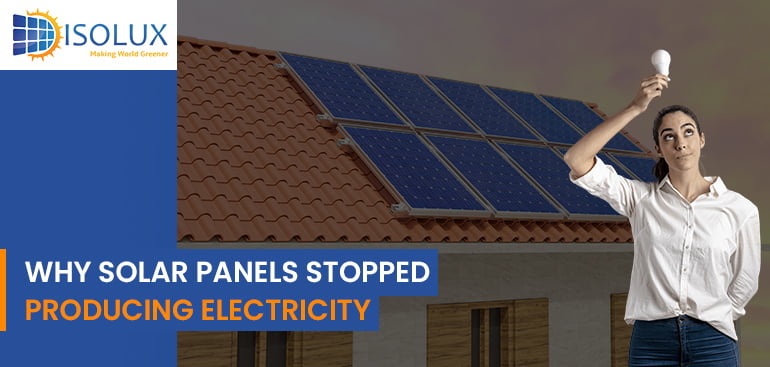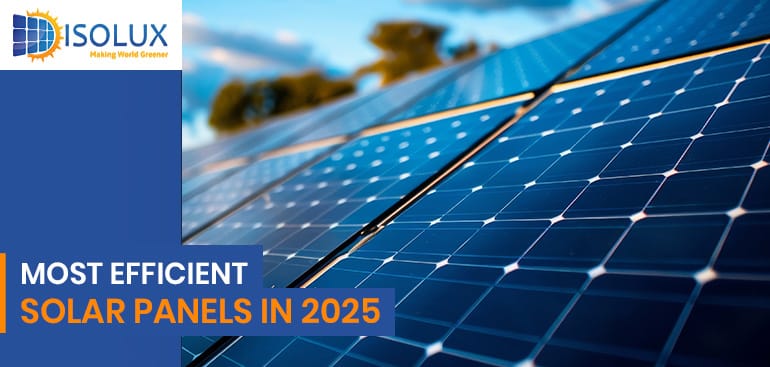Are you wondering why your solar panels are not producing enough power? It can be frustrating to invest in a solar system when you find out it’s not generating the expected electricity. In this blog, we will explore seven possible reasons why solar panels stopped producing electricity and help you understand what might be the issue.
Reason Why Solar Panels Stopped Generating Electricity
Solar panels are designed to harness the power of the sun and convert it into usable electricity. However, several factors can affect their performance, resulting in a decrease in power production.
Let’s delve into the possible reasons behind your solar system not generating enough electricity:
1. Shade Is Covering Solar Panels
One common reason for reduced power output is shading. If any part of your solar panel array is shaded, it can significantly impact the overall system performance. Even a small amount of shading on just one solar panel can affect the entire string of panels. It is essential to regularly check for any obstructions, such as tree branches or nearby structures, casting shadows on your panels.
2. Dirty Solar Panels
Dirt, dust, leaves, or bird droppings on your solar panels can obstruct sunlight and reduce their efficiency. Regular cleaning and maintenance are crucial to ensure optimal performance. Gently rinsing the panels with water and using a soft brush can help remove any debris. However, it’s essential to follow the manufacturer’s guidelines and avoid abrasive materials that may scratch the surface.
3. Solar Inverter Issues
The solar inverter plays a vital role in converting the direct current (DC) generated by your solar panels into alternating current (AC) that can be used to power your home. If your inverter is malfunctioning or not working correctly, it can lead to a significant decrease in power production. It’s advisable to consult a professional to diagnose and repair any inverter-related issues.
4. A Solar Meter Is Not Installed
A solar meter allows you to monitor the performance and energy production of your solar system. If you don’t have a solar meter installed, you may not be aware of any potential issues with your system. Monitoring your solar system’s output regularly can help you detect and address any problems promptly.
5. Solar Panels Tripping Circuit Breaker
In some cases, solar panels that are not working properly can cause your circuit breaker to trip. This can happen due to a short circuit, ground fault, or other electrical issues within your solar system. If you experience frequent circuit breaker trips, it’s crucial to consult a qualified electrician to identify and resolve the underlying problem.
6. Solar Panels Overheating
Solar panels operate best when they are cool. High temperatures can decrease their efficiency and power output. If your solar panels are exposed to excessive heat or direct sunlight for extended periods, it can lead to a decrease in performance. Ensuring proper ventilation and avoiding panel installation in areas prone to extreme heat can help mitigate this issue.
7. A Loose Wire On Panel Array
A loose or disconnected wire within your solar panel array can disrupt the flow of electricity and impact the overall power output. Regularly inspecting your solar system and checking for any loose connections or damaged wires is crucial to maintain optimal performance.
Conclusion
If solar panels stopped producing electricity then it is essential to regularly monitor and maintain your solar panel system to ensure its optimal performance. By addressing any shading, cleaning your panels, resolving inverter issues, installing a solar meter, addressing circuit breaker trips, preventing overheating, and checking for loose wires, you can maximize the electricity generation of your solar system.
If you encounter persistent issues or require professional assistance, don’t hesitate to contact Isolux Solar, a leading solar installer in Sydney to harness the power of the sun to the fullest.
Read Next Blog:




